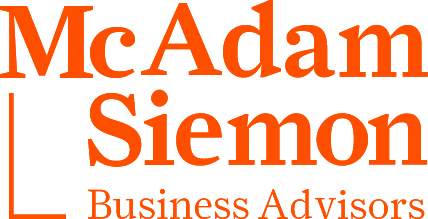News
What’s ahead for 2024-25?
Posted: 02 July 2024

Will 2024-25 be another year of volatility or a return to stability?
Super Guarantee Obligations
As you would be aware (at least we hope so after a $40m public education campaign), the personal income tax cuts came into effect on 1 July 2024.
At the same time, the superannuation guarantee (SG) rate increased by 0.5% to 11.5%.
For employers, it’s critically important to ensure that your payroll system, and all interactions with it, like salary sacrifice agreements, are assessed and updated. Your PAYG withholding will also be impacted.
It is now critical that super guarantee obligations are paid correctly and on time:
- Are you paying super guarantee to the right people? The definition of an employee for SG purposes is broad and, in some cases, extends beyond typical classifications. Temporary residents, backpackers, and some company directors working in the business, family members working in the business, and some contractors must be paid SG. Check your classifications are correct for SG purposes.
- Check the fund details are correct for the employee and the employee’s tax file number has been provided to the super fund. It’s the employer’s obligation to ensure that SG for the employee is directed to the correct super fund account.
- Ensure SG is paid into the employee’s fund by the quarterly due date (next SG payments are due by 28 July). If your business misses the deadline, the super guarantee charge applies (even if you pay the outstanding amount quickly after the deadline). The SG charge (SGC) is particularly painful for employers because it is comprised of the outstanding SG, 10% interest p.a. from the start of the quarter, and an administration fee. And, unlike normal SG contributions, SGC amounts are not deductible.
Business confidence
The latest NAB business survey is not happy reading with business confidence falling back into negative territory in May as conditions continued to gradually soften. Having experienced eight consecutive months of forward order declines, businesses are understandably circumspect over the outlook. GDP grew marginally in the March quarter and consumption per capita continued to decline.
However, labour market conditions are strong with unemployment at 4% for May.
Treasury forecasts that economic growth (GDP) will marginally improve to 2% in 2024-25. Not exciting but credible.
Business Failures – don’t get caught
Businesses fail (or fail to thrive) for a myriad of reasons, but the precursor is often a failure to understand what is occurring within the business and what to monitor.
Strategically, business owners need to be on top of their numbers to identify and manage problems before they get out of hand. If you do not know what the key drivers of your business are, then it’s time to find out (we can help you with that).
A lack of profit will erode your business, but not enough cash will kill it stone dead. Businesses often fail because they don’t manage their cash position. Plan, track, and measure your cashflow. This not only means closely monitoring your debtor collections and inventory if applicable, but also running a rolling three month cashflow position. This should provide an early warning of any brewing problems.
Cash flows, operating budgets, cost control and debt management all need to be part of your business management. The more in control you are the lower your risk position.
Many small businesses also tend to absorb increasing costs. Putting up your prices during difficult times is not an act of social betrayal. If the cost of doing business has increased, you should flow these through unless you are comfortable making less for the same amount of effort, or you are in an industry that is so price sensitive you have no choice but to follow the lead of larger businesses.
$20k instant asset write-off passes Parliament
Legislation increasing the instant asset write-off threshold from $1,000 to $20,000 for the 2024 income year passed Parliament just 5 days prior to the end of the financial year.
Purchases of depreciable assets with a cost of less than $20,000 that a small business makes between 1 July 2023 and 30 June 2024 can potentially be written-off in the year of purchase. It’s a major cashflow advantage because the tax deduction can be taken in the year of purchase instead of over a number of years.
To be eligible, the asset must be first used, or installed ready for use, for a taxable purpose between 1 July 2023 and 30 June 2024. For example, you cannot simply have a receipt for an industrial fridge, it must have been delivered and installed to be able to claim the write-off in 2024.
The write-off threshold applies per asset, so a small business entity can potentially deduct the full cost of multiple assets across the 2024 year as long as the cost of each asset is less than $20,000. A Bill to extend the instant asset write-off threshold increase to 30 June 2025 is currently before Parliament.
Earned an income from the sharing economy?
It’s essential that any income earned from sharing economy platforms such as Airbnb, Stayz, Uber, etc., is declared in your tax return.
Since 1 July 2023, the platforms delivering ride-sourcing, taxi travel, and short-term accommodation (under 90 days), have been required to report transactions made through their platform to the ATO under the sharing economy reporting regime. 2023-24 is the first year that the ATO will have the income tax returns of taxpayers to match to this data.
All other sharing economy platforms will be required to start reporting from 1 July 2024.
This reporting regime, combined with the ATO’s data matching programs, mean that if income is not declared, it’s likely you will receive a “please explain” request from the regulator.
ASIC company annual fee
The annual return fee for ASIC has increased from 1 July 2024 to $321.00.
This is an increase of $11.00 on the 2023 fee.
